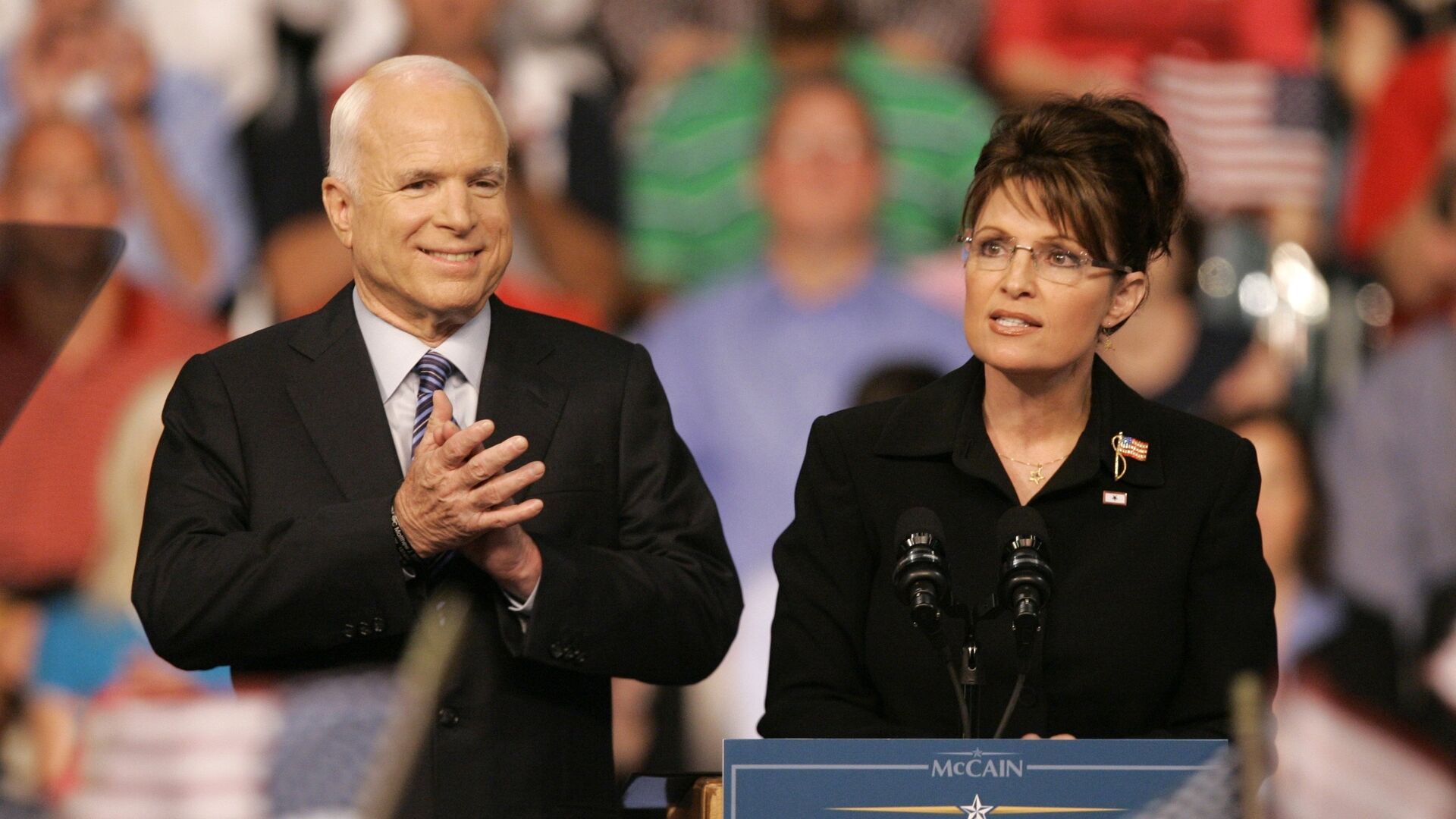McCain Said ‘F*** It, Let’s Do It’ When Picking Sarah Palin as 2008 VP Candidate, New Book Claims
23:57 GMT 07.02.2022 (Updated: 10:57 GMT 11.03.2024)

© AP Photo / Kiichiro Sato
Subscribe
Although her ticket lost the 2008 US presidential election, it briefly catapulted then-Alaska Governor Sarah Palin to national prominence as a critic of the Barack Obama administration. However, she was also seen as emblematic of a stereotype of US rural conservatives as both loud and ignorant.
When the late US Sen. John McCain (R-AZ) revealed in late August 2008 that he had picked Alaska’s Governor Palin to be his running mate on the Republican ticket ahead of the party’s national convention, he described her as having “the grit, integrity, good sense and fierce devotion to the common good that is exactly what we need in Washington today.”
However, according to a new book about recent political trends in the Republican Party by New York Times journalist Jeremy Peters titled “Insurgency: How Republicans Lost Their Party and Got Everything They Ever Wanted,” the Arizona senator was less than certain what a good idea it was.
According to Axios, which received an advance copy of the book ahead of its Tuesday public release, McCain compared the pick to a roll of the dice in a conversation with top advisers.
"Mark Salter, a longtime aide to McCain, cautioned him that voters could see a Palin pick as discordant with the message of readiness and experience that the campaign had been focusing on as a contrast with Obama, a forty-seven-year-old first-term senator. 'There’s worse things, John, than losing an election. You could lose your reputation,' Salter told him,” the book reads, according to Axios.
Other aides had similar concerns, but saw the potential in a novel pick like Palin, who was not only very outspoken, but also both the first woman the GOP had ever put on their presidential ticket and the second by either major party. Eventually, McCain turned to his wife, Cindy, who told him “John, it’s a gamble.”
"Well, I wish you hadn’t said that," McCain reportedly said, his face lighting up. An avid gambler, the senator reportedly balled up his fist and blew on it, as gamblers often do for good luck, and pretended to throw the dice across an imaginary craps table.
“F*** it, let’s do it,” McCain told the room.
In the two months that followed, Palin made one gaffe after another, although she performed remarkably well in her single debate against Obama’s vice presidential running mate, then-Sen. Joe Biden. Still, McCain and Palin lost the November 2008 election, and the duo soon split their separate ways.
In many ways, they represented two divergent trends in the Republican Party, with Palin becoming a voice in the emergent Tea Party movement that pushed further to the right in protest to Obama’s perceived left-wing tendencies, and McCain, who represented a fraction of the GOP willing to compromise with Democrats on many issues.
By the end of his life, McCain came to regret picking Palin. As he was dying of brain cancer in 2018, the former US Navy fighter pilot told HBO in the documentary “John McCain: For Whom the Bell Tolls” that he should’ve picked then-Sen. Joe Lieberman (I-CT), who had previously been Al Gore’s running mate in his failed 2000 bid for the presidency, instead of Palin.
In January 2016, Palin threw what political weight she had left behind Donald Trump’s nascent US presidential campaign. McCain didn’t run. He died two years later, but during his final years and even after his death, Trump threw one insult at him after another, criticizing him for being a prisoner of war in North Vietnam during the Vietnam War. After McCain’s death, Trump opined that he “didn’t get a thank you” from the family for approving a state funeral for him.
